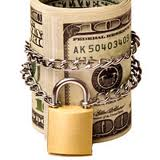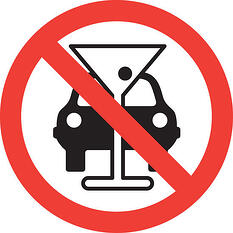BAR MANAGEMENT
by Bob Johnson
My first book about bartender theft, written five years ago, was called “The 45 Ways Bartenders Can Rob You Blind.” Now it’s up to 51! Just when you think you’ve uncovered all the ways bartenders steal, they come up with new ways. A bartender was caught recently at a casino inAtlantic Citywith a hypodermic needle injected into an overhead liquor line from an electronic inventory control system, sucking out the liquor into a six ounce vial which he was going to take out to his bartender buddy at the pool bar. He was found with three vials in his pocket already. This is an advanced method of “bringing in your own liquor” (theft technique #14 in my book). Not all bartenders are thieves, but I’ve caught so many bartenders stealing, I’m beginning to wonder. I am told there is no solution; that, in essence, you’re always going to have bartender theft. But I disagree. I believe you can keep the theft to an absolute minimum if you simply hire right. Get the right people on board to begin with and you will have fewer problems with theft. But it’s a full time job keeping your people honest.
The majority of employee theft is created by owners and managers who know little to nothing about running a bar. There’s probably no inventory control system in place. No controls means bartenders now have the “opportunity” to steal unabated. If bartenders are never held accountable for their performance behind the bar and what they do with each and every drink, and how it is accounted for, then they’re free to do whatever they want whenever they want. Inventory control should be a daily regimen. It’s the biggest and most important part of a bar manager’s job. Therefore, if there is no daily accounting, bartenders have nothing to fear. They can give away beers/ drinks, take the money for a drink and put it in their pocket, etc., because there’s no way for anyone to know for sure what’s going on.I’m going to share my ways of controlling bartender theft. It’s taken me three or four decades to put all this together. The methods I use work well for me and it works for the clubs I’m operationally involved with. It will never be 100 percent, but I’m pretty close to it! Controlling bartender theft starts with the hiring process.


 A bar business is not, as many people think, a service industry. Of course, it's part service industry, but it's also very important not to forget that it's also an entertainment industry. Do your bartenders entertain your customers while they are serving them?
A bar business is not, as many people think, a service industry. Of course, it's part service industry, but it's also very important not to forget that it's also an entertainment industry. Do your bartenders entertain your customers while they are serving them?
 More often than not, scams and thievery can be detected and/or prevented relatively easily. Strict enforcement of all employee rules is a must and vigorous prosecution of any offenders is essential. Employees must be made clearly aware of the dire consequences of flouting the house rules - every detail must be addressed.
More often than not, scams and thievery can be detected and/or prevented relatively easily. Strict enforcement of all employee rules is a must and vigorous prosecution of any offenders is essential. Employees must be made clearly aware of the dire consequences of flouting the house rules - every detail must be addressed. Why do they do it? Your bar is a good place to work; you're a decent boss - you pay above-average wages - why does your staff feel the need to break the law? Put simply, human nature is to take something for nothing when the chance arises. An informed bar manager is in a far better position to fight losses from theft.
Why do they do it? Your bar is a good place to work; you're a decent boss - you pay above-average wages - why does your staff feel the need to break the law? Put simply, human nature is to take something for nothing when the chance arises. An informed bar manager is in a far better position to fight losses from theft.


